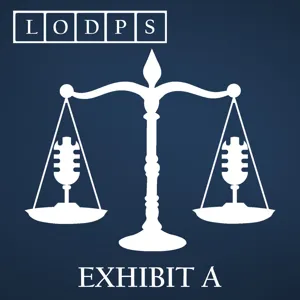Podcast Summary
Court reporters discontinued for family law cases: The absence of court reporters in family law trials could lead to inaccurate records, increased costs, and complications in the appellate process, potentially impacting the fairness and effectiveness of the legal system.
The LA Superior Court has discontinued the provision of court reporters for family law cases, which could lead to significant challenges in creating accurate records during trials. This change could negatively impact the ability to impeach witnesses, recall precise orders, and appeal decisions. The lack of a court reporter could result in proceedings relying solely on the judge's memory, which may not be reliable or complete. While parties can pay for court reporters out of pocket, the cost may be prohibitive for some. This change could lead to increased costs and complications in the appellate process, as well as potential issues with preserving an accurate record during trials. Overall, the elimination of court reporters for family law cases is a concerning development that could negatively impact the effectiveness and fairness of the legal system.
Understanding jurisdiction in family law cases is crucial: The lack of court reporters can lead to conflicting legal proceedings in different states, emphasizing the importance of understanding jurisdiction in family law cases.
The lack of court reporters is causing issues with jurisdiction in family law cases. The speaker shared an example of a case where a couple was married in Massachusetts but the husband moved to California for work, leading to conflicting legal proceedings in both states. The wife initially signed a proof of service for a legal separation in California, but later filed for divorce in Massachusetts. The husband then wanted a divorce in California as well. The speaker noted that if the wife had checked a different box on her California response, the proceedings could have been handled entirely in California. This case highlights the importance of understanding jurisdiction in family law cases and the potential impact of the shortage of court reporters on the legal process.
Connections to a state determine personal jurisdiction: Personal jurisdiction is not based on who files first, but rather on the level of connections a person has with a state.
Personal jurisdiction, or the ability of a court to exercise authority over a person, is determined by the minimum contacts a person has with a state. In this case, a husband believed he had jurisdiction in California because he filed and served first, but the wife, who lived and worked in Massachusetts, had no contacts with California. This meant that California did not have personal jurisdiction over her. This concept, which is crucial in civil procedure, can impact the outcome of competing jurisdiction cases. It's essential to understand that jurisdiction is not based on who files or serves first, but rather on the connections a person has with a state.
Service of process doesn't grant jurisdiction: California courts didn't have jurisdiction over non-resident wife since she wasn't formally served or agreed to it, despite husband's earlier filing for divorce there.
Proper service of process does not automatically confer jurisdiction over a non-resident defendant. In the discussed case, a husband attempted to serve his wife while she was in California at Disneyland, but since she was not formally served or had agreed to jurisdiction, California courts did not have personal jurisdiction over her. The husband had filed for divorce in California before his wife did in Massachusetts, but since Massachusetts courts had jurisdiction over both parties, the Massachusetts case took precedence. The husband's initial filing for legal separation in California instead of divorce also did not impact the outcome.
California Court's Jurisdiction in Out-of-State Marriages: California courts can dissolve out-of-state marriages if both parties have a connection to the state. Consult an attorney for specific implications.
A California court can dissolve a marriage even if it was not celebrated in California, as long as both parties have a connection to the state. This concept, known as "jurisdiction," is important to understand when dealing with divorce proceedings in different courts. The case discussed in the podcast involved a man who filed for legal separation in California despite being married in another state. While the reason for this action is unclear, it highlights the procedural complexities that can arise when dealing with multiple case numbers and jurisdictions. It's essential to note that the jurisdiction deals with the people being in California or connected to California, not the location of the marriage itself. Therefore, if you're considering a divorce and have connections to California, it's important to consult with an attorney to understand the specific implications for your case.





